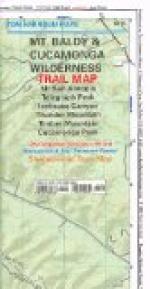“Yon’s a bit o’ corduroy road, I declar’!”
He pointed with his whip ahead, and the travellers shot out their necks to see this novel highway. It extended for about a quarter of a mile over a swamp, and spoke volumes for the energy and ingenuity of the hardy lumbermen who constructed it.
These brawny heroes, who are fine types of American grit and manhood, when clearing a broad track over which their great timber logs could be hauled from the depths of the forest to the landing on some big river, had found the swampy tracts an impassable obstacle for animals trammelled with harness and a heavy load.
They bridged them by laying down logs cut to even lengths in a slightly slanting position across the way for the entire extent of miry ground. Each piece of timber was tightly wedged in by its fellow; nevertheless, there was a space of several inches between their rounded tops. Hence the track presented a striped appearance, which suggested to some spirited genius among woodsmen its name of “corduroy road.”
“Well, Neal, do you think you can tell your folks a thing or two about forest travelling when you get back to England?” asked Doc, when the order of march was changed, young Farrar and the Sinclairs turning out to do their share of tramping, while the doctor, Cyrus, and the guides benefited by “a lift.”
“I rather think I can,” answered Neal; “but goodness! I feel as if there were aches and bruises all over me. Once or twice my head seemed jumping straight off my shoulders. No more going in a wagon over corduroy roads for me! I’d rather be leg-weary any day.”
The travellers halted that evening about five o’clock on the banks of a lonely stream. The guides pitched the two tents—Joe had provided one for his party—facing each other on a patch of clearing, with a space of about fifteen feet between them, in the centre of which blazed a roaring camp-fire. Now all the axes and knifes among the band were in demand for cutting and sharpening stakes and ridge-poles on which to stretch their canvas.
Moreover, no evergreen boughs could be procured for beds; and the boys had to work with a will, helping Uncle Eb and Joe to cut bundles of the long, rank grass that grew by the water to form a bed for their tired bodies.
Every one was camp-hungry, as they had not halted for a meal since leaving the settlement. After a splendid supper of venison, broiled over sizzling logs, bread, and fried potatoes,—for they had added to their stores at the farm,—they had a glorious social hour by the camp-fire. Joe got off any amount of “ripping” stories; and the sound of many a jolly chorus, led by Cyrus, and swelled by the musical efforts of the entire crew, mingled with the lonely rustle of the night wind among faded and drifting leaves.
When Doc’s summons came to turn in, they stretched themselves upon the grassy beds, not undressing, as the night was chilly and the temporary quarters were not so snug as their previous ones. Still in their warm jerseys, trousers, woollen stockings, and knitted caps, with the heat from the piled-up camp-fire streaming under the raised flaps of the tents, they slept as cosily as if they lay on spring mattresses, surrounded by pictured walls.




